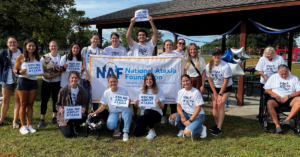Guest Authors: Drs. Paulson, Ashizawa, and Öz
Right now, it’s an exciting time in the Ataxia field. Many companies are working rapidly to bring therapies to the clinic for the Spinocerebellar Ataxias (SCAs). Unfortunately, however, we still need to know more about the natural history of SCA and relevant biomarkers so that we can test these potential therapies effectively.
The NIH-funded READISCA study of SCA1 and SCA3 seeks to do just that. READISCA investigators have been evaluating people with SCA1 or SCA3 for two years now, but we still need your help! If you have SCA1 or SCA3 and are walking independently or with the use of a cane, your participation will help us “get ready” for these anticipated therapy trials. Actively enrolling sites can be found all across the United States. Visit readisca.org for more information.
Have a different type of SCA? You can still help out. The CRC-SCA natural history study of all SCAs, at any disease stage, is also actively enrolling at most of the same sites across the country. Learn more at ataxia.org/crc-sca.
We all want to see therapies find their way to the Ataxia clinic. Your participation in READISCA or the CRC-SCA study will help. Together, we will make it happen.
Thank you!

Dr. Henry Paulson

Dr. Tetsuo Ashizawa

Dr. Gulin Öz















